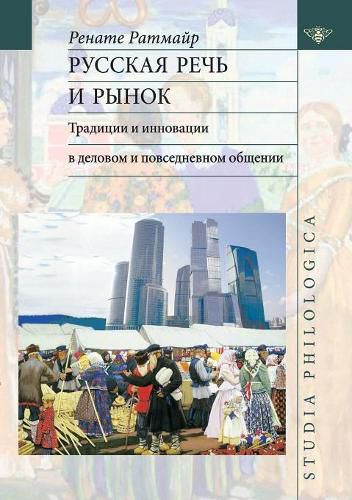Readings Newsletter
Become a Readings Member to make your shopping experience even easier.
Sign in or sign up for free!
You’re not far away from qualifying for FREE standard shipping within Australia
You’ve qualified for FREE standard shipping within Australia
The cart is loading…






This title is printed to order. This book may have been self-published. If so, we cannot guarantee the quality of the content. In the main most books will have gone through the editing process however some may not. We therefore suggest that you be aware of this before ordering this book. If in doubt check either the author or publisher’s details as we are unable to accept any returns unless they are faulty. Please contact us if you have any questions.
The book is devoted to the study of social life and relationship Russian speech at the end of XX - beginning of XXI centuries. Significant impact on the Russian language in this period had primarily two things: on the one hand, the restructuring of the economy and society, and after her breakup of the USSR, on the other - the globalization of the economy on a global level. The research is based on an empirical basis: authentic record of some genres of business communication, such as interviews, discussions, meetings and collection of written texts. In this case, the method of participant observation. It was also carried out focused interviews, including the politeness and the application of new methods of management. On these topics have been developed and questionnaires. The analysis allowed to see the dynamics of the existence and development of the language in the post-perestroika Russia. Tradition and innovation are manifested in different proportions, which is connected with regional factors, and with the respondents belonging to different generations and genders. The book includes the author of the article published in the last 20 years, new treatment and arrangement. The book consists of three parts: The vocabulary and concepts , Pragmatics and Russian style of communication. Rynochnizatsiya Russian speech is present, but it is similar collage on the cover, wherein the used work Kustodiev Fair (1906). In this process, connect tradition and innovation, brings together native Russian with elements of a market economy and social achievements. The book is addressed to philologists-specialists in Russian philology, as well as specialists in the field of sociolinguistics and linguistic pragmatics. Used in parts of the comparative approach to the German language may be of interest to teachers of Russian as a foreign language and German studies. Description of the elements of business communication and corporate discourse might be interested in figures of the economy and all who care about the development of the modern Russian language.
$9.00 standard shipping within Australia
FREE standard shipping within Australia for orders over $100.00
Express & International shipping calculated at checkout
This title is printed to order. This book may have been self-published. If so, we cannot guarantee the quality of the content. In the main most books will have gone through the editing process however some may not. We therefore suggest that you be aware of this before ordering this book. If in doubt check either the author or publisher’s details as we are unable to accept any returns unless they are faulty. Please contact us if you have any questions.
The book is devoted to the study of social life and relationship Russian speech at the end of XX - beginning of XXI centuries. Significant impact on the Russian language in this period had primarily two things: on the one hand, the restructuring of the economy and society, and after her breakup of the USSR, on the other - the globalization of the economy on a global level. The research is based on an empirical basis: authentic record of some genres of business communication, such as interviews, discussions, meetings and collection of written texts. In this case, the method of participant observation. It was also carried out focused interviews, including the politeness and the application of new methods of management. On these topics have been developed and questionnaires. The analysis allowed to see the dynamics of the existence and development of the language in the post-perestroika Russia. Tradition and innovation are manifested in different proportions, which is connected with regional factors, and with the respondents belonging to different generations and genders. The book includes the author of the article published in the last 20 years, new treatment and arrangement. The book consists of three parts: The vocabulary and concepts , Pragmatics and Russian style of communication. Rynochnizatsiya Russian speech is present, but it is similar collage on the cover, wherein the used work Kustodiev Fair (1906). In this process, connect tradition and innovation, brings together native Russian with elements of a market economy and social achievements. The book is addressed to philologists-specialists in Russian philology, as well as specialists in the field of sociolinguistics and linguistic pragmatics. Used in parts of the comparative approach to the German language may be of interest to teachers of Russian as a foreign language and German studies. Description of the elements of business communication and corporate discourse might be interested in figures of the economy and all who care about the development of the modern Russian language.